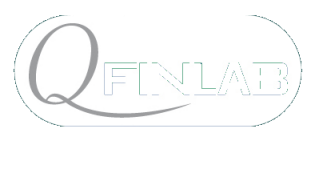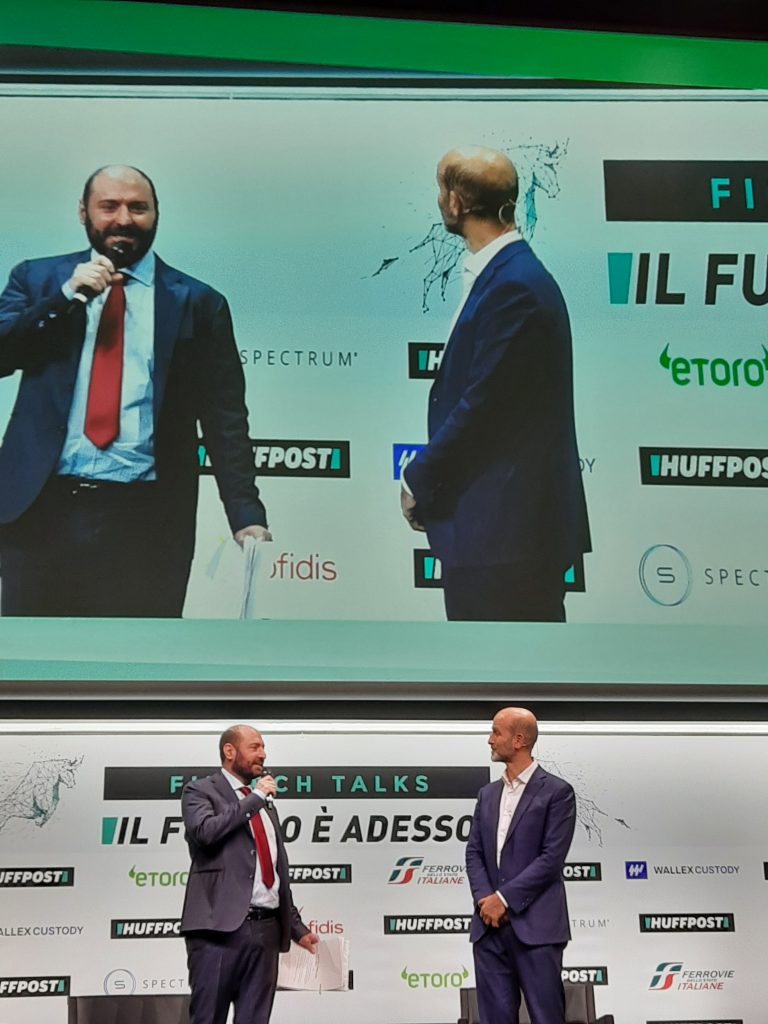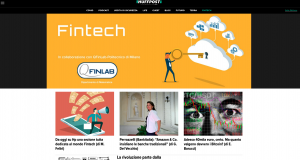Report delle attività condotte nel 2021 dal gruppo QFinLab, Dipartimento di Matematica, Politecnico di Milano
Il gruppo
I metodi quantitativi sono diventati sempre più importanti nel settore finanziario negli ultimi anni. Per far fronte alla crescente richiesta di formazione e ricerca in questo settore, il Dipartimento di Matematica del Politecnico di Milano ha istituito nel 2006 un gruppo di ricerca e un programma di formazione (laurea triennale e magistrale) in Finanza quantitativa. Nel 2011 tutte le attività sono state collocate all’interno del Laboratorio di Finanza Quantitativa Nicola Bruti Liberati (QFinLab) diretto dal Prof. Emilio Barucci.
QFinLab vuole essere un punto di riferimento nella finanza quantitativa a livello nazionale e internazionale su ricerca, formazione, attività di divulgazione e collaborazioni con l’industria. Il gruppo è composto da un professore ordinario, due professori associati, un ricercatore di tipo A, tre assegnisti di ricerca e quattro dottorandi. Nel 2021 un dottorando ha difeso la sua tesi.
Attività didattica
Il gruppo QFinLab ha svolto attività didattica sia per i corsi di laurea offerti dal Politecnico di Milano che per i master proposti da MIP – School of Management del Politecnico di Milano. Gli insegnamenti erogati dal QFinLab riguardano principalmente la finanza matematica.
Nell’ambito della Laurea Triennale e Magistrale di Ingegneria Matematica per l’a.a. 2020-2021 sono stati erogati gli insegnamenti di Finanza Matematica I (250 studenti), Mathematical Finance II (corso tenuto dal Prof. Carlo Sgarra, 95 studenti), Financial Engineering (60 studenti), Computational Finance (60 studenti), Insurance and Econometrics (50 studenti), Fintech (85 studenti). I membri del QFinLab hanno anche svolto attività didattica in corsi di analisi e geometria.
Nella laurea specialistica di Ingegneria gestionale è stato attivato il corso Advanced Mathematical Models in Finance (5 CFU, 12 studenti).
I programmi degli insegnamenti erogati per i Corsi di Laurea del Politecnico di Milano sono disponibili QUI.
Nel corso del 2021 i membri del gruppo QFinLab hanno supervisionato 38 tesi di laurea magistrale.
Nel corso del 2021 sono state veicolate 50 offerte di stage per gli studenti dei corsi di finanza tenuti dai membri del QFinLab.
In merito alla collaborazione con MIP – Politecnico di Milano, il QFinLab è coinvolto in due iniziative (di cui Emilio Barucci è direttore):
- Il Corso di Alta Formazione in Finanza Quantitativa è giunto all’undicesima edizione, a partire dal 2021 è divenuto un Master in Finanza Quantitativa. Il Master è in lingua italiana ed è rivolto principalmente a profili junior. Il Master si propone di fornire competenze approfondite per operare negli ambiti di gestione dei portafogli, valutazione di prodotti finanziari, trading di prodotti finanziari, gestione del rischio, machine learning. Il Master forma figure professionali in grado di affrontare problemi concreti nell’ambito della finanza quantitativa nell’industria bancaria, assicurativa, del risparmio gestito. Nell’a.a. 2020-2021 i partecipanti al corso sono stati 22.
- L’International Master in Fintech, Finance and Digital Innovation approfondisce la relazione tra le nuove tecnologie digitali ed il mondo finanziario (banche, compagnie assicurative e asset management). Il programma si propone di formare professionisti del mondo finanziario con competenze legate alle nuove tecnologie digitali (gestione di big data, cybersecurity, tecnologia blockchain, smart contracts, natural language processing, data visualization) necessarie per operare con successo nell’ambito della rivoluzione digitale in finanza. Nell’a.a 2020-2021 i partecipanti al corso sono stati 23 provenienti da dodici nazionalità.
Attività di ricerca
Pubblicazioni del gruppo per l’anno 2021:
- Agasisti, T., Cannistrà, M., Marazzina, D., and Soncin, M. (2021) Financial Education during COVID-19 – Assessing the effectiveness of an online program in a high school. Applied Economics incorporating Applied Financial Economics, forthcoming.
- Azzone, M., Barucci, E., Giuffra, G., and Marazzina, D. (2021) A machine learning model for lapse prediction in life insurance contracts. Expert Systems with Applications, forthcoming.
- Azzone, M. and Baviera R. (2021). Additive normal tempered stable processes for equity derivatives and power-law scaling. Quantitative Finance, online.
- Azzone, M. and Baviera R. (2021). Neural network middle-term probabilistic forecasting of daily power consumption. Journal of Energy Markets, 14(1).
- Azzone, M. and Baviera R. (2021). Synthetic forwards and cost of funding in the equity derivative market. Finance Research Letters, 41.
- Barucci, E., Bonollo, M., Rroji, E., Poli, F. (2021) A machine learning algorithm for stock picking based on information outliers, Expert Systems with Applications, 184.
- Barucci, E., Brigo, D., Francischello, M., and Marazzina, D. (2021) On the design of sovereign bond-backed securities. International Journal of Financial Engineering.
- Barucci, E., Colozza, T., European financial systems through the crisis: patterns and convergence, Review of International Economics, 2021.
- Barucci, E., Dindo, P. and Grassetti, F. (2021). Portfolio Insurers and Constant Weight traders: who will survive? Quantitative Finance, 21(12).
- Barucci, E., Marazzina, D., and Mastrogiacomo, E. (2021) Optimal Investment Strategies with a Minimum Performance Constraint. Annals of Operations Research, 299.
- Baviera, R. (2021). The measure of model risk in credit capital requirements. Finance Research Letters, 102064.
- Baviera, R., Nassigh, A., & Nastasi, E. (2021). A closed formula for illiquid corporate bonds and an application to the European market. Journal of International Financial Markets, Institutions and Money, 71, 101283.
- Baviera, R., and Bianchi, G. (2021) Model risk in mean-variance portfolio selection: an analytic solution to the worst-case approach. Journal of Global Optimization, 81 (2).
- Brachetta, M. and Ceci, C. (2021) Optimal reinsurance problem under fixed cost and exponential preferences, Mathematics, 9(4).
- Coppier, R. , Grassetti, F. and Michetti, E. (2021). Non-compliant behaviour in public procurement: an evolutionary model with endogenous monitoring. Decisions in Economics and Finance, 44.
- Dossi, F., and Marazzina, D. (2021) L’educazione finanziaria nelle scuole secondarie. La proposta Edun@Polimi e l’esperienza presso l’Istituto di Istruzione Superiore Alberti di Bormio. Nuova Secondaria, 7.
- Grassetti, F., Mammana, C. and Michetti, E. (2021). A dynamical model for real economy and finance. Mathematics and Financial Economics, forthcoming.
- La Bua, G., and Marazzina, D. (2021) On the Application of Wishart Process to the Pricing of Equity Derivatives: the Multi-asset Case. Computational Management Science, 18(2).
- La Bua, G., and Marazzina, D. (2021) A new class of multidimensional Wishart-based hybrid models. Decisions in Economics and Finance, forthcoming.
L’attività seminariale organizzata dal QFinLab ha visto i seguenti interventi:
- Emilio Barucci A machine learning algorithm for stock picking based on information outliers.
- Valerio Potì (University College Dublin), COVID Narrative Risk: A Computational Linguistic Approach to the Econometric Identification of Narrative Risk During the COVID-19 Pandemic.
- Charalampos Stasinakis (University of Glasgow), Big Data, Artificial Intelligence and Machine Learning: A Transformative Symbiosis in Favour of Financial Technology.
- Michele Azzone (Politecnico di Milano), A Machine Learning Model for Lapse Prediction in Life Insurance Contracts.
Il QFinLab ha organizzato la Conferenza Online (10-11 Giugno) Big Data e Machine Learning in Finance: 26 relatori e quattro invited speaker: Tomaso Aste (University College London), Emanuele Borgonovo (Università Bocconi), Juri Marcucci (Bank of Italy), Georgios Sermpinis (Adam Smith Business School, University of Glasgow). La conferenza ha ricevuto oltre 300 registrazioni. Il dettaglio completo dell’evento è disponibile QUI.
In collaborazione con la Lake Como School of Advanced Studies-Fondazione Alessandro Volta, il QFinLab ha organizzato la summer school From Networks to Neural Networks in Finance, Giugno 2021. I partecipanti sono stati quaranta, gli speakers dei mini corsi sono stati: Albert Diaz Guilera, Universitat de Barcelona: Complex networks foundations; Tomaso Aste, UCL London: Information filtering networks for socio-economic systems; Matteo Matteucci, Politecnico di Milano: Introduction to neural networks: from theory to practice; Josef Teichmann, ETH Zurich: Provable Machine Learning Techniques in Finance.
Il programma completo dell’iniziativa è disponibile QUI.
Il QFinLab ha promosso la decima edizione del Premio Bruti Liberati per la migliore tesi di dottorato in Finanza Matematica in collaborazione con la famiglia Bruti Liberati e la Bachelier Society. Il premio è stato assegnato a Daniel Bartl (Università di Costanza) per la tesi ‘‘Robust techniques for utility maximization and related problems’’.
I risultati della ricerca dei membri del QFinLab sono stati presentati in alcune conferenze nazionali o internazionali e seminari:
- 1 Dicembre 2021 – Marazzina, D. “An investigation on Volatility Adjustment”. UCL seminar (webinar).
- 24 Novembre 2021 – Grassetti, F. “Portfolio Insurers and Constant Weight traders: who will survive”. Afternoon Math Seminars at DISEI, Università del Piemonte Orientale.
- 13 Novembre 2021 – Baviera, R. “The measure of model risk in Credit Capital Requirement”. 12th Annual Financial Market Liquidity Conference, Budapest, Hungary.
- 11 Novembre 2021 – Marazzina, D. “Cryptocurrencies and Stablecoins: a high frequency analysis”. Cost Action WG1 Seminars (webinar).
- 15 Settembre 2021 – Grassetti, F. “Asset price-GDP cross feedback. The role of dividend policies in a dynamic setting”. 11th NED, Nonlinear Economic Dynamics Conference, Milano, Italy.
- 1 Settembre 2021 – Marazzina, D. “Machine Learning model in the Insurance sector”. SIMAI 2020+2021, Congress of the Italian Society of Industrial and Applied Mathematics, Parma, Italy.
- 1 Settembre 2021 – Grassetti, F. “Do financial markets affect real economy? Influences of professional and non-professional beliefs”. SIMAI 2020+2021, Congress of the Italian Society of Industrial and Applied Mathematics, Parma, Italy.
- 26 Luglio 2021 – Grassetti, F. “Nonlinear dynamics in real Economy and financial markets. The role of dividend policies in fluctuations”. ICDEA 2021, 26th International Conference on Difference Equations and Applications, Sarajevo, Bosnia.
- 15 Luglio 2021 – Baviera, R. “Additive Normal Tempered Stable process for Equity derivatives and Power Law Scaling”. Workshop new challenges in quantitative finance, Barcellona, Spagna.
- 15 Luglio 2021 – Azzone, M. “Short time asymptotics of additive tempered stable process”. Workshop new challenges in quantitative finance, Barcellona, Spagna.
- 14 Luglio 2021 – Brachetta, M. “Optimal Public Debt Management”. Virtual seminar in Insubria & Bicocca.
- 7 Luglio 2021 – Brachetta, M. “Optimal reinsurance problem under fixed cost and exponential preferences”. 24th International Congress on Insurance: Mathematics and Economics (IME 2021), Virtual Congress.
- 14 Giugno 2021 – Marazzina, D. “A Machine Learning Model for Lapse Prediction in Life Insurance Contracts” – Lake of Como School “From Network to Neural Network” (webinar).
- 11 Giugno 2021 – Azzone, M. “A Machine Learning Model for Lapse Prediction in Life Insurance Contracts”. Big Data and Machine Learning in Finance, Milano, Italia.
- 14 Aprile 2021 – Brachetta, M. “I principi di base della teoria del rischio: rischi assicurativi e calcolo dei premi”. Invited talk at University of Chieti-Pescara (Organizer: Prof. Ceci Claudia).
- 12 Marzo 2021 – Marazzina, D. “A Machine Learning model for lapse prediction in life insurance contracts. 1st International Conference on Economics and FinTech, Atene, Grecia, Webconference.
Fintech
Accanto alle attività di ricerca legate al mondo Fintech (Conferenza Big Data e Machine Learning in Finance, Summer School From Networks to Neural Networks in Finance, pubblicazioni nella precedente sezione), nel 2021 è stata avviata una collaborazione con il sito www.huffingtonpost.it: un nuovo canale verticale curato (dal punto di vista scientifico) da QFinLab e dedicato a tutte le tematiche d’attualità che coinvolgono le nuove tecnologie applicate al mondo finanziario.
Sempre in collaborazione con Huffington Post, il 3 dicembre 2021 il gruppo QFinLab ha organizzato l’evento Fintech Talks: il futuro è adesso, un momento di discussione con i principali attori del mondo Fintech sullo stato attuale del Fintech in Italia.
Nell’anno 2021, alcuni membri del QFinLab hanno partecipato ai seguenti progetti europei su tematiche Fintech:
- European Union’s Horizon 2020 training and innovation program ‘‘FIN-TECH’’, under the grant agreement No. 825215 (Topic ICT-35-2018, Type of actions: CSA),
- COST Action CA19130 – ‘‘Fintech and Artificial Intelligence in Finance – Towards a transparent financial Industry’’ (FinAI).
Il QFinLab, in collaborazione con il Cefriel e l’Università di Stirling, ha ottenuto un finanziamento dalla Algorand Foundation per il progetto Emfi (Emergency Finance). EmFi è incentrato sullo sviluppo di una valuta virtuale speciale, supportata da istituzioni pubbliche, per lo scambio responsabile e senza attriti di risorse, servizi, beni, crediti e beni tra istituzioni, cittadini e aziende. Dopo una prima sperimentazione nel 2021, un’implementazione pilota su un caso reale di EmFi sarà eseguita nel 2022 in collaborazione con il Comune di Milano. L’implementazione consisterà nella distribuzione di fondi di welfare per l’acquisto di libri di scuola primaria utilizzando token digitali e codici QR come mezzo di pagamento.
Attività di divulgazione
Oltre alla collaborazione con l’HuffingtonPost, anche nel 2021 è proseguito l’impegno del QFinLab per la divulgazione di analisi riguardanti i mercati finanziari attraverso il sito FinRiskAlert (www.finriskalert.it). Il sito conta attualmente 1450 iscritti alla mailing list settimanale.
In Aprile è stato organizzato un ciclo di seminari divulgativi sul tema Central Bank Digital Currency, aventi come relatori il Prof. Emilio Barucci e il Dott. Piero Cipollone (Banca d’Italia).
Di seguito riportiamo l’elenco di alcuni interventi divulgativi effettuati da membri del QFinLab:
- 3 Dicembre 2021, co-organizzazione con Huffington Post della conferenza “Fintech Talks – il futuro è adesso”, Palazzo Mezzanotte, Milano.
- 5 Novembre 2021, Salone dei Pagamenti, intervento su DEFI di Emilio Barucci.
- Ottobre, Novembre 2021, Webinar organizzati da PRMIA su cryptocurrencies e Central Bank digital currency, interventi di Emilio Barucci.
- 27 Ottobre 2021, organizzazione della conferenza “Esperienze a confronto in tema di educazione finanziaria, Politecnico di Milano”. All’interno della conferenza l’intervento di Daniele Marazzina “L’esperienza Edufin@polimi: progetti ed evidenze nei primi cinque anni di attività”.
- 15 Ottobre 2021, partecipazione allo Scottland Fintech Festival, intervento di Daniele Marazzina “Emfi – Emergency Finance”, panel discussion di Emilio Barucci.
- 14 Ottobre 2021, webinar per l’associazione studentesca Starting Finance, intervento di Emilio Barucci “Fintech – dalla blockchain al machine learning”.
- 7 Ottobre 2021, convegno “Consigli di amministrazione e assetti proprietari delle società quotate” organizzato dal Consiglio Nazionale dell’Economia e del Lavoro (CNEL). Intervento di Emilio Barucci su “Assetti proprietari e corporate governance nel nuovo millennio”.
Educazione Finanziaria
Il gruppo QFinLab prosegue nel suo impegno nel campo dell’educazione finanziaria attraverso il progetto EduFin@Polimi. Le iniziative nel 2021 sono state le seguenti:
- Flipped classroom e PCTO: Percorsi di flipped classroom (didattica innovativa) sviluppati dal gruppo di ricerca per educare alla finanza gli studenti delle scuole superiori di secondo grado attraverso gli strumenti matematici. A partire dal 2020, i percorsi possono anche essere riconosciuti come attività di PCTO. Nel 2021 hanno partecipato 519 studenti. Per il 2022 si prevede di ampliare il programma dei materiali inserendo moduli specifici per gli studenti delle scuole secondarie di primo grado.
- Summer School: Prima summer school targata EduFin@Polimi in cui gli studenti delle scuole superiori di secondo grado hanno appreso i concetti base di matematica finanziaria. Hanno partecipato 22 studenti.
- Caccia al tesoro: il QFinLab ha dato il proprio contributo durante il Mese per l’Educazione Finanziaria (ottobre 2021) organizzando una caccia al tesoro virtuale, attività di edu-gaming sui temi della matematica finanziaria.
- Schede di matematica applicata alla finanza per DeAgostini: attraverso la collaborazione con la casa editrice DeAgostini, il QFinLab ha predisposto schede per i libri del triennio di matematica delle scuole secondarie di secondo grado. Nelle schede vengono trattate tematiche di finanza, applicando le conoscenze matematiche acquisite durante il percorso di studi.
- Policollege: il QFinLab ha partecipato al Policollege, un progetto di didattica innovativa che offre a studenti delle scuole secondarie di secondo grado l’opportunità di una formazione avanzata in materie tecnico-scientifiche. Hanno partecipato 60 studenti.
Nel 2021 il gruppo QFinLab ha inoltre ampliato la gamma di attività dedicate al mondo degli adulti grazie a quattro nuovi progetti di educazione finanziaria:
- Progetto Will: QFinLab ha collaborato al progetto Will organizzato da Caritas e Diaconia Valdese di Firenze, con l’obiettivo di fornire le conoscenze finanziarie di base a famiglie in difficoltà economiche con il fine ultimo sostenere efficacemente le spese per la formazione scolastica ed extrascolastica dei figli. Hanno partecipato circa 50 famiglie.
- Progetto pro bono MIP: in collaborazione con MIP, il QFinLab ha offerto agli alumni MIP la possibilità di mettere a disposizione le proprie competenze pro-bono per favorire uno sviluppo sostenibile e inclusivo della società, attraverso l’erogazione di corsi di educazione finanziaria dedicati ad adulti in contesti di fragilità.
- Corso di educazione finanziaria per il personale tecnico amministrativo del Politecnico di Milano: in collaborazione con servizio welfare del Politecnico di Milano, il QFinLab ha erogato un corso di finanza personale per il personale tecnico amministrativo, caratterizzato da un approccio concreto alle scelte finanziarie personali quali scelte di finanziamento, prestiti, mutui, investimenti finanziari e piani pensionistici. Il corso ha ricevuto circa 90 iscrizioni.
- Informarsi Conviene: il gruppo QFinLab ha realizzato gli storyboard dei video presenti sul sito internet www.informarsiconviene.it tenuto dall’Organismo di vigilanza e tenuta dell’albo unico dei Consulenti Finanziari, dedicati all’informazione sulle principali tematiche finanziarie rilevanti per i piccoli investitori.
Il QFinLab è stato attivo nell’ambito della divulgazione scientifica sia dei propri progetti che di altre istituzioni in ambito finanziario-educativo:
- Conferenza “Esperienze a confronto in tema di educazione finanziaria”: La conferenza, tenutasi nel contesto del Mese per l’Educazione Finanziaria (27 ottobre), ha raccolto le testimonianze più significative nell’ambito dell’educazione finanziaria (adulti e studenti) con l’obiettivo di sviluppare un’approfondita discussione sui nodi emersi nella pratica, le buone pratiche da replicare e le sfide del futuro al fine di progettare iniziative sempre più efficaci. All’evento sono intervenuti numerosi autorevoli attori della scena dell’educazione finanziaria: Tommaso Agasisti, Giovanna Boggio Robutti, Riccardo De Bonis, Nadia Linciano, Annamaria Lusardi, Daniele Marazzina, Giovanna Paladino, Claudia Segre. Hanno partecipato circa 90 tra docenti e dirigenti scolastici.
- Conferenze: il QFinLab si è impegnato a diffondere la propria esperienza e i risultati ottenuti negli anni partecipando alla conferenza organizzata dall’Università di Milano-Bicocca e alla sezione Edu-SIMAI del congresso nazionale di matematica applicata.
- Webinar informativi: per entrare in contatto diretto con i docenti delle scuole superiori, il QFinLab ha organizzato due eventi virtuali per spiegare dettagliatamente le proprie attività di educazione finanziaria e dare supporto ai docenti interessati alle iniziative. Ad ogni incontro hanno partecipato circa 40 docenti.
Rapporti con l’industria
Il QFinLab ha all’attivo diversi progetti di consulenza. La fondazione Algorand ha finanziato un progetto di ricerca in ambito blockchain.
Ai precedenti si aggiungono alcuni contratti relativi all’educazione finanziaria:
- due contratti con De Agostini per creazione di materiale per le scuole;
- contratto con Fondazione Cassa di Risparmio di Firenze per l’educazione finanziaria degli adulti;
- contratto con l’Organismo di vigilanza e tenuta dell’albo unico dei Consulenti Finanziari per storyboard di video;
- finanziamento liberale da Banca d’Italia per progetti di educazione finanziaria.










